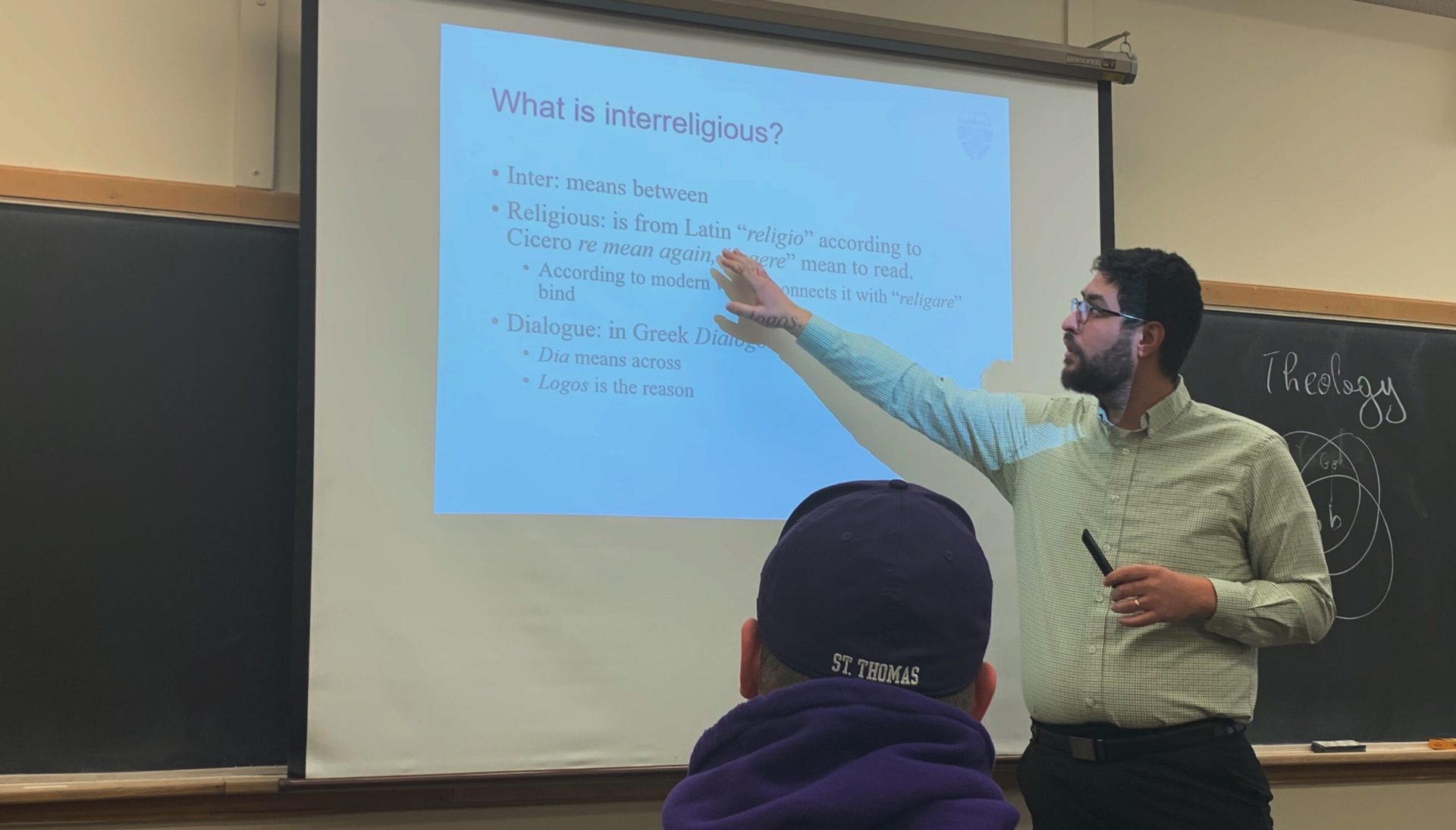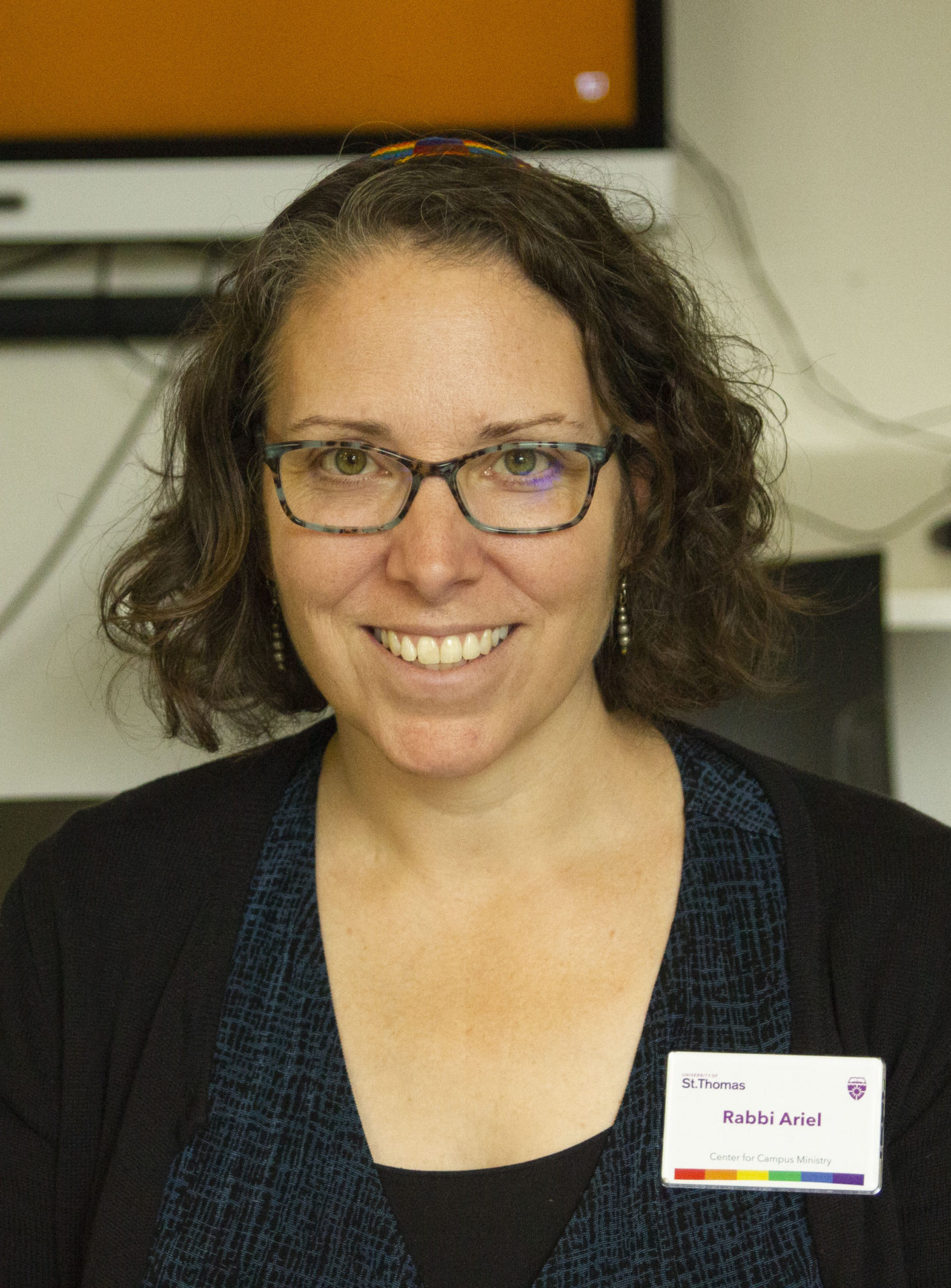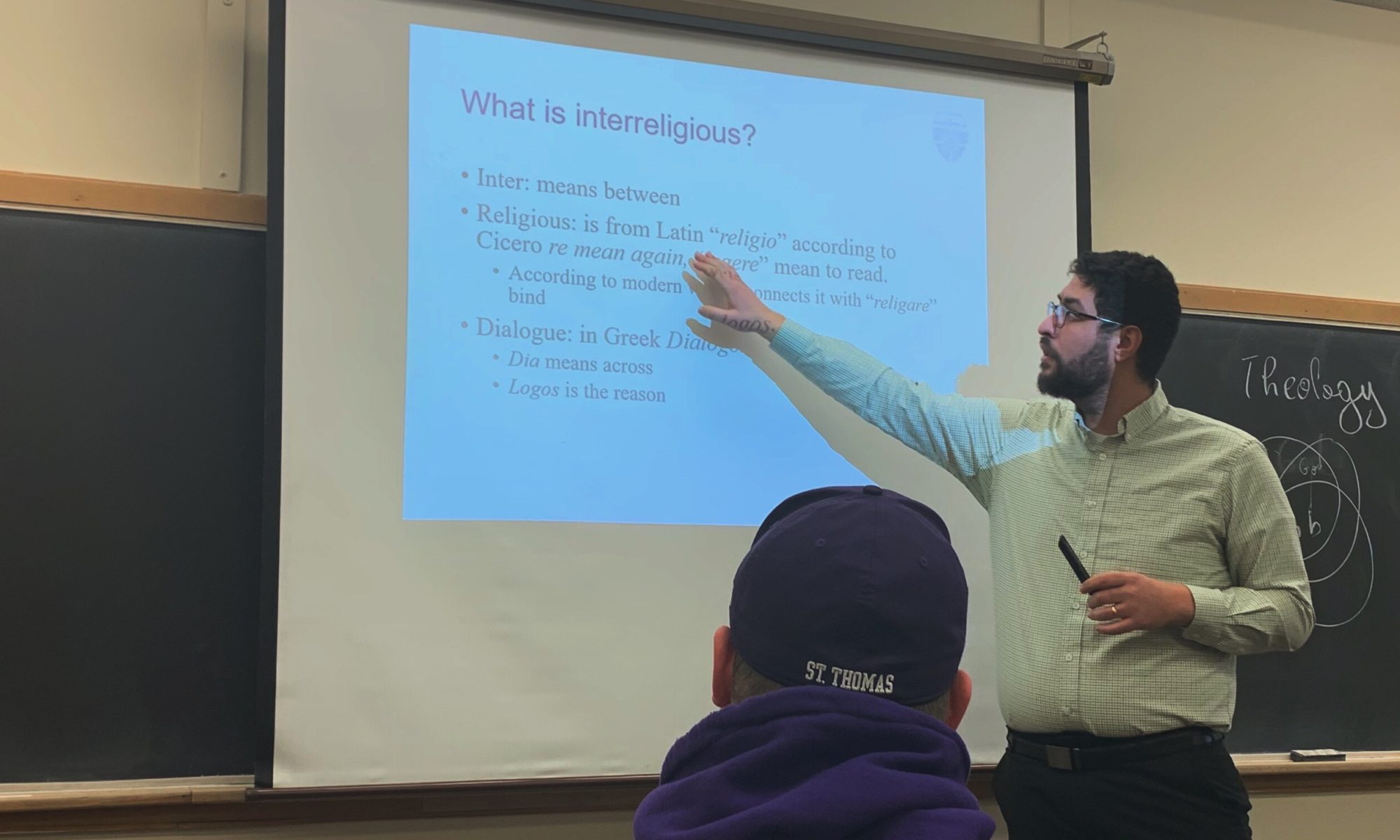
Interfaith Council Chair, professor Ali Chamseddine, presents a lecture on interreligious dialogue. St. Thomas’ interfaith council was established to address the student body’s growing religious needs. (Burke Spizale/TommieMedia)
As St. Thomas increases its interfaith efforts, the university’s Interfaith Council seeks to add more student council members.
Father Larry Snyder, vice president for mission, realized three years ago that there was growing religious diversity among St. Thomas students. Snyder created the Interfaith Council to properly address the student body’s growing religious needs.
The Interfaith Council was developed in accordance with Nostra Aetate, a document produced after The Second Ecumenical Council of the Vatican, where the Catholic Church endorsed interreligious dialogue. Current council chair and adjunct theology professor Ali Chamseddine believes interfaith dialogue is vital.
“Since we are a Catholic university, I think it is very important to emphasize the importance of dialogue and even encourage our students who come from different religious backgrounds to adopt the dialogue in their life,” Chamseddine said.
According to Snyder, student council members meet approximately once a month during convo hour and bring a vital perspective to the council. Snyder said there are currently three or four students on the council, but he would love to have more.
“Most importantly, (a new) student council member would bring their perspective and ideas of how we can increase offerings in ways the students would actually like,” Snyder said.
St. Thomas has historically been predominantly Catholic. However, as the university has diversified, so has its student body.
“Forty percent of the students are Catholic and 60% of the students are not Catholic,” Chameseddine said. “You need to take care of all of their spiritual needs.”
Snyder weighed in on St. Thomas’ growing religious diversity.
“We need to be encouraging to all of our students in developing their faith, whatever that is,” Snyder said. “The fact that we are now only some 40% Catholic, means that we have an obligation to take care of all spiritual needs.”

Associate Jewish Chaplain Amy Ariel is one of the interfaith council members. (Maxwell Collier/TommieMedia)
Chamseddine expressed that despite some negative responses, dialogue creates change.
“In order to make change, we need the people who are in the interfaith council to apply dialogue in their everyday lives, which will start a chain of reactions,” Chamseddine said.
Associate Jewish Chaplain Amy Ariel recently joined the council and expressed a similar desire for change.
“I believe the only way interfaith can really work is if the people who are engaged in it know one another and are in an interfaith dialogue themselves,” Ariel said.
The council is eager for more students to join, hoping it will further the university’s interfaith ambitions and enable the chain of reactions they seek.
Burke Spizale can be reached at spiz8477@stthomas.edu.


–“‘We need to be encouraging to all of our students in developing their faith, whatever that is,’ Synder said.”
This is obviously false. Is Fr. Snyder encouraging evangelical flat-earthers to develop in their false fundamentalist faith? Is he encouraging evangelical Trump-supporters to develop in their Americanist faith? Doubt it. So what faiths (plural!) is Fr. Snyder encouraging students to develop?
–“‘The fact that we are now only some 40% Catholic, means that we have an obligation to take care of all spiritual needs.'”
This is ambiguous. Did we NOT have an obligation to meet people’s spiritual needs when the school was majority Catholic? What does “all spiritual needs” mean? Does this mean the need for *all* seven sacraments? or does this mean that UST has an obligation to facilitate and encourage the superstitious rites of non-Catholic religions? (The recent superstitious Ekhart Tolle event on campus comes to mind.)
–“Associate Jewish Chaplain Amy Ariel recently joined the council and expressed a similar desire for change.”
This is ambiguous. What kind of change are we desiring. The invention of penicillin was a change, but the Bolshevik Revolution was also a change. Perhaps we shouldn’t aspire to be mere “changemakers.”